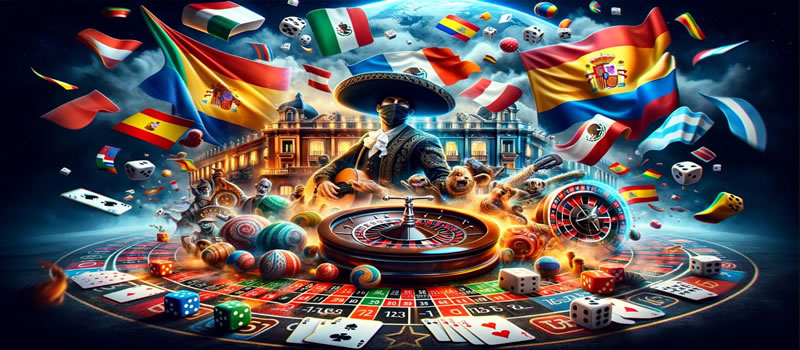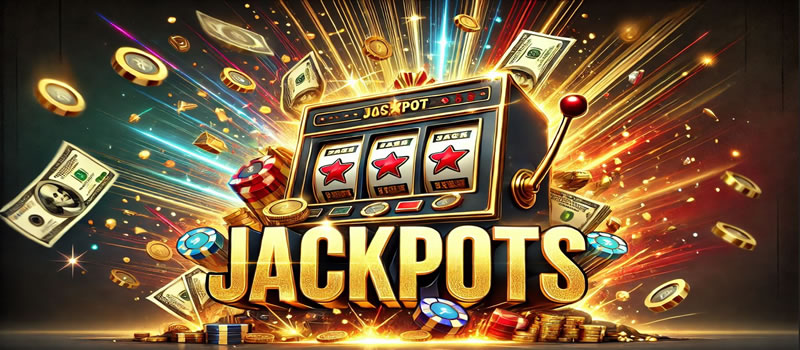The allure of the jackpot is so strong that individuals across different backgrounds find themselves captivated by it. A strong allure that is hard to resist comes from the chance of winning a sizable quantity of money through gaming at casinos, playing lotteries, or other games of chance. For millions of people around the world, the dream of achieving sudden wealth and financially independent in an instant holds great appeal. Numerous psychological factors play a role in the jackpot's allure.
Main Points
- Why jackpots captivate us: The excitement of landing a huge win draws people in due to the potential for life-changing rewards.The dopamine-driven jackpot effect: The brain's response to potential gains, such as winning a jackpot, is fueled by the release of dopamine, creating a feeling of pleasure and drive.Risk and reward dynamics: The attraction to jackpots stems from the combination of risk with the possibility of reward, engaging the brain’s reward circuits.Optimism and hope in jackpot pursuits: The chance of a big win impacts our mindset, fostering feelings of hope and positive expectation for the future.Social and cultural influences: The jackpot’s appeal to us is shaped by societal values, cultural expectations, and social influences.
The ability to indulge in luxuries without financial concerns and the possibility of becoming financially free is highly appealing to many. The allure of potentially affording anything, such as luxurious clothing or far-flung travel, motivates people to seek out major wins. Also, a major part of the jackpot's appeal stems from its unexpected nature & unpredictability. The rush can’t easily be replicated the excitement that is produced by the prospect of striking it lucky with a single ticket purchase or by spinning the wheel for a large payout. The draw to jackpots also taps into our innate desire for adventure and excitement.

A neurotransmitter called dopamine is produced in response to pleasurable experiences like indulging in delectable food, engaging in fun activities, and yes, hitting a huge win. Dopamine is essential in the brain's reward system. Dopamine is triggered in our brain when we expect a possible reward, like winning the lottery, which feels great and pushes us to seek more rewards. The Dopamine-Propelled Chase of Massive Victories. We are strongly motivated to look for chances for large wins by the strong psychological pull that is created when dopamine is released in response to possible rewards.
The possibility of winning the lottery floods the brain with dopamine, which produces an irresistible rush and joy. It is this dopamine-driven reaction to possible rewards that drives our desire to take chances in the hopes of landing a big win & draws us to jackpots. Addiction and compulsive behavior: the dark side of dopamine. The brain floods dopamine when we anticipate a big win, which can cause addiction-like excitement of excitement and anticipation. Some people develop an addiction to gambling, which can be explained by dopamine's role in attracting us to jackpots. A strong psychological pull that can result in addiction & a loss of self-control is driven by the dopamine released for potential rewards.
Our natural desire for risk and reward is closely tied to the the lottery's attraction. The possibility of striking it rich is a high-stakes game that draws in our deep need for risk and excitement. Our interest in jackpots is fueled by the rush that comes with going after big victories. Many people find great resonance in the concept of risk-taking and possibly earning huge rewards, which motivates them to take chances in the hopes of claiming the grand prize. Our evolutionary past as hunter-gatherers may also provide insight into the connection between risk-taking and reward-seeking in attracting us to jackpots.
Taking chances has been crucial to human survival throughout our evolutionary past because it frequently meant the difference between obtaining essential resources and going hungry. Because our ancestors found this behavior beneficial in securing resources, it is ingrained in our brains to seek out high-reward risks. This natural inclination for risk still shapes our actions today, causing us to be drawn to jackpots and encourage us to take chances in the hopes of striking it rich.
Our attraction to jackpots is driven by risk & reward, which connects with our craving for freedom and control over our own lives. The chance to become wealthy presents an opportunity for limitless living and on one's own terms. The prospect of taking a chance and perhaps landing huge rewards appeals to live casino options our desire for control and personal agency, which drives us to chase big rewards in the quest for financial freedom. Our attraction to jackpots is largely driven by the optimism and hope that big wins inspire. The chance for a massive win sparks hope for a better future, which bolsters our confidence and drives us to go after big wins.
It is difficult to resist the optimism that arises from the thought that one fortunate event has the potential to improve our lives. The possibility of vast wealth taps into our innate yearning for optimism & hope, encouraging us to take chances in the quest for future prosperity and stability. The psychology of optimism and hope also deeply influences our mindset in the pursuit of big wins.
We are energized by hope and we are inspired to keep chasing after large wins despite the odds when we have the possibility of winning the jackpot. This sense of hope and excitement can create addiction-like behaviors. We take risks in search of financial security because we have an unyielding optimism that one fortunate break could change our future. The influence of optimism & hope on our thinking regarding jackpots also relates to our deep desire for control of our own lives. Hope powers us forward by the possibility of winning big, which drives us to gamble in the search for financial freedom and freedom from financial constraints. It is impossible to overestimate the power of social and cultural pressures on our attraction to jackpots.
We are bombarded with messages that strengthen the allure of striking it rich, with media portrayals of overnight millionaires to societal norms to attain financial success. Our view of jackpots are shaped by the ubiquitous influence of social and cultural factors, which also feed our addiction to jackpots and spur us to take chances in the quest for financial security. Social pressure and social norms are just two more examples of how social and cultural factors affect our attraction to jackpots. Chasing big wins is seen as an desirable, glitzy, and exciting pursuit in many social circles.
Individuals might gamble more in an effort to gain validation or validation from others by experiencing the pressure to keep up with friends or those who have won big. Our innate need for status is further evidenced by the influence of social and cultural factors on our draw to jackpots. What draws us to jackpots and encourages us to take chances in the hopes of hitting the jackpot is the chance for wealth and fame, which can boost our status. The Addicting Cycle of Pursuing Huge Wins. The dopamine-driven reaction to prospective rewards can set off an addictive cycle that pushes people to keep gambling in the hopes of winning big, frequently at great personal expense.

In addition, gambling for jackpots can strain bonds with friends & family, leading to isolation & loneliness. Support and Awareness for Addicts. The dangers of going after large winnings make it clear that people who may be experiencing compulsive gambling behavior need compassion and assistance.
Society must recognize the risks of gambling and provide help to individuals who may be at risk of developing addictive behaviors. By taking these steps, we can work towards a setting that is safer and more supportive for people who might be having trouble the lure of the big win. Develop strategies for responsible gambling behavior to help people manage the emotional impact of jackpot chasing.
Limiting the time spent and money spent on gambling activities can help people stay away from compulsive behavior patterns and lessen the risks involved in gambling for big wins. For individuals struggling with gambling addictions linked to chasing jackpots, seeking support from friends, family, or professional counselors can be hugely beneficial. Individuals can protect themselves from developing compulsive gambling behavior patterns by adopting healthier coping strategies for managing stress and emotional triggers.
People can discover healthy ways to cope with stress without gambling by staying active, meditating, or finding enjoyable hobbies and pastimes. In conclusion, individuals of all backgrounds are drawn to the jackpot because of its irresistible attraction. Our attraction to big wins is fueled by numerous mental triggers, ranging from the release of dopamine in reaction to possible rewards to our innate desire for risk and reward. However, to avoid falling into gambling addiction, individuals need to recognize the dangers involved in jackpot pursuits and develop strategies for managing the psychological impact of these pursuits.

People can experience the excitement of chasing large wins without succumbing to addiction by comprehending the psychology underlying our attraction to jackpots & cultivating responsible, healthy gambling habits.
Frequently Asked Questions
What is the psychology behind the attraction to winning big jackpots?
The psychology behind the attraction to winning big jackpots stems from the brain's reward system. When we anticipate the possibility of winning a large sum of money, our brains produce dopamine, a neurotransmitter linked to joy and reward-seeking. This dopamine release creates a feeling of excitement and anticipation, which can be highly addictive.
What keeps people playing after they lose?
People continue to play for jackpots even after experiencing losses because of the effect of near-miss events. When individuals come close to winning but ultimately fall short, it triggers a surge of dopamine similar to that of a real win. This near-miss experience fuels hope and drives them to keep playing, despite previous losses.
What role does social influence play in the attraction to winning big jackpots?
Social influence plays a significant role in our craving for jackpots. The visibility of jackpot winners in the public eye and among friends builds social validation, leading individuals to believe that winning is achievable and desirable. Additionally, the joy and celebration around big wins can influence others to start gambling.
What are the downsides of craving jackpots?
Craving big wins can lead to potential negative effects, particularly when it becomes compulsive or addictive. Excessive gambling in pursuit of big wins can cause financial problems, damage personal relationships, and mental health issues. Moreover, the allure of winning big jackpots can lead to unrealistic expectations and skew one's view of odds.
What are healthy ways to handle jackpot attraction?
Individuals can manage their attraction to winning big jackpots with smart strategies by setting limits on their gambling behavior, practicing responsible gaming, and asking for help if they feel their attraction to jackpots is becoming problematic. It's important to approach gambling activities with a balanced perspective and to prioritize enjoyment and entertainment over obsessing about winning big.